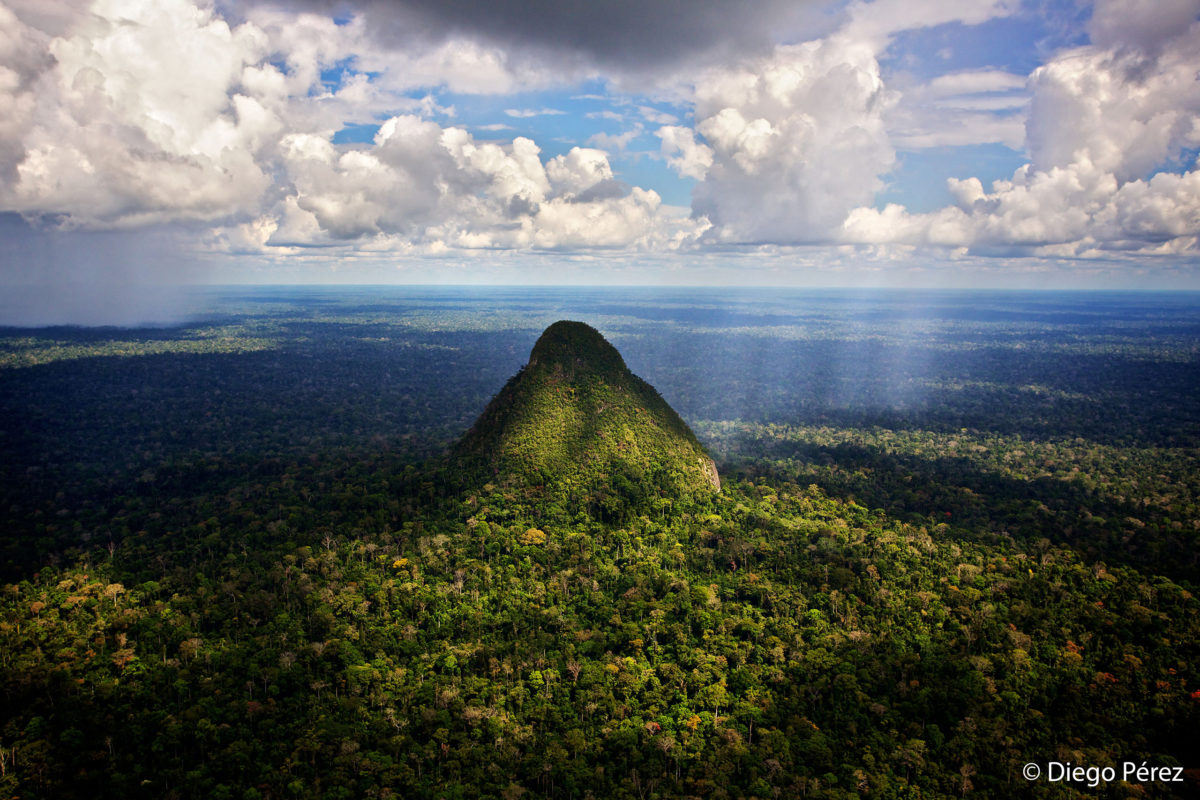Last month, nine organizations collectively announced a $5 billion pledge toward biodiversity conservation efforts worldwide. Most of the participants are philanthropic foundations, but one signatory is Rainforest Trust, a conservation group that committed $500 million.
The scale of Rainforest Trust’s commitment was surprising to some in the conservation world: just a decade ago, the Virginia-based group had an annual budget in the low single-digits millions. Now the organization is aiming to raise nine figures a year over the next five years — an incredible rate of expansion.
Rainforest Trust is undertaking that ambitious target just 18 months after undergoing a major leadership transition: In April 2020, it appointed James Deutsch as CEO. Deutsch joined Rainforest Trust after several years at the Paul G. Allen Family Foundation, where he oversaw the Great Elephant Census and worked on other biodiversity conservation initiatives under the umbrella of the late Microsoft co-founder’s personal philanthropy. Before that, he was Africa Director and then Vice President for Conservation Strategy at the Wildlife Conservation Society (WCS).

Deutsch says the pledge will push Rainforest Trust to double down on its mission of creating and expanding protected and conserved areas through partnerships with other organizations. Rainforest Trust rallies the resources; partners lead the work on the ground.
“We will continue to support land purchases, especially in the centers of endemism so critical for preventing species extinctions. But we will balance that with support for larger-scale park designations and indigenous titling projects, including in vast areas of intact forest — such as the Amazon and Congo,” he told Mongabay. “We will also support projects in forests particularly important for storing and sequestering carbon, such as mangroves and peat forests.”
“Every one of our projects is implemented on the ground by a community group or non-profit. Since I started here eighteen months ago I’ve chatted with most of our eighty or so partners, from the Center for Sustainability in Palawan, Philippines, to Strong Roots in the Democratic Republic of Congo, to CEDIA in Peru. Even over Zoom, these conservationists are incredibly inspiring — visionary, long-term committed to their countries, forests, and communities, and super-capable.”
Working with local partners is key to addressing two major gaps that currently limit conservation — equity and inclusivity — says Deutsch.
“First, conservation needs to solve the equity problem that the costs of conservation — such as loss of short term and local economic opportunities — is often born by local, rural people who can least afford it. The benefits of conservation, often flow to wealthier more distant people, whether they are tour operators or private individuals who care about gorillas. That inequity needs to be fixed,” he told Mongabay.
“Second, conservation will only scale up when non-conservationists, whether they are local and indigenous people or they are economists and industrialists, see its value.”

But conservation is only a part of what’s needed to stave off climate change and mass extinction. Speaking more broadly, Deutsch identifies three crucial levers to drive the systemic change needed to transform our relationship with the natural world.
“Economics, culture, and technology, in that order,” he said. “Although none of the social sciences are as successful as the natural ones at predictions, the most successful is economics. So above all we need to, as the economists say, “internalize the externalities” — that is stop providing free license to people and organizations to pollute the air, change the climate, destroy biodiversity, etc. The first step is a price on carbon.”
“But culture matters too, which is why the Greta Thunbergs of this world are so important. And technology can enable the changes we need to make, whether increasing renewable energy or monitoring forest loss.”
Deutsch spoke on these topics and more during a recent interview with Mongabay.

